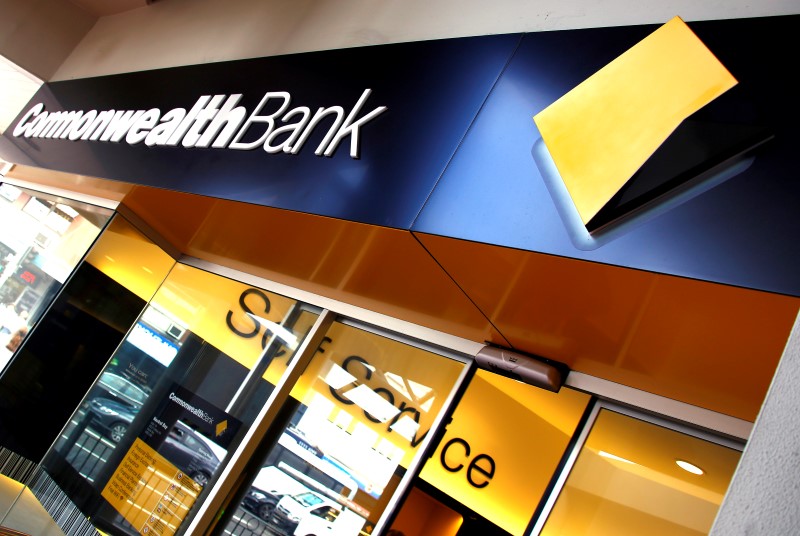By Swati Pandey and Jonathan Barrett
SYDNEY (Reuters) – Australia’s four leading banks face the biggest test to their dominance since the 2008 global financial crisis as politicians calling for a public inquiry into how they operate look set to emerge from national elections in July with decisive influence.
The calls for a special parliamentary investigation, known as a Royal Commission, follow a series of poor conduct charges leveled at big banks, from giving consumers bad financial advice to claims of rate-rigging by three of the top four lenders.
A Royal Commission with far-reaching powers could be a headache for the “Big Four” – Commonwealth Bank of Australia (CBA) <CBA.AX>, Westpac Banking Corp <WBC.AX>, Australia and New Zealand Banking Group (ANZ) <ANZ.AX> and National Australia Bank (NAB) <NAB.AX>. The four are behind 80 percent of the country’s lending and have scored strong profit growth for years.
“A Royal Commission is very negative because anything can be opened up, so I understand why banks are so keen to avoid it at all costs,” said Omkar Joshi, who manages A$1 billion ($738 million) at Watermark Funds Management.
Under Royal Commissions, executives can be compelled to attend public hearings and answer questions under oath. Findings can trigger major reforms: a police regulator was established after a Royal Commission into the New South Wales Police in 1995 uncovered widespread corruption.
Polls predict a tight race in the July 2 federal election. While the ruling Liberal-National coalition does not support a public inquiry into banks, even if it emerges from the ballot as the leading political force it could be outvoted on the issue in parliament, with both the main opposition Labor Party and key independent lawmakers backing a comprehensive probe.
“I think we need to have a robust Royal Commission,” Senator Nick Xenophon, whose newly created party, Nick Xenophon Team, could have the balance of power in the Senate, told Reuters.
“It should be about how do we better protect consumers, how do we strengthen those non-‘Big Four’ banks as well in relative terms?”
Pauline Hanson, leader of the right-wing One Nation party and well placed to win a seat in Australia’s Senate, also supports a wide-ranging inquiry. “We definitely have to have one. That’s high on our agenda,” Hanson told Reuters.
Officials at the four main lenders did not respond to Reuters’ requests for comment for this story.
DOMESTIC SHIELD
Bank executives have rejected the calls for a probe, saying consistent industry regulation offers the best solution.
“We are not denying there have been problems, we are not denying there has to be ongoing scrutiny of the industry,” Australian Bankers’ Association Chief Executive Steven Münchenberg said earlier this year. “The question is do we need a Royal Commission to do that? No, we do not.”
NAB’s CEO Andrew Thorburn said in a statement in April a Royal Commission would be a “serious distraction”, while ANZ CEO Shayne Elliott said such an inquiry could damage Australia’s standing among global investors.
The market grip of Australia’s main banks – among the tightest of all developed economies – has left the sector in the political spotlight before. The big four’s domestic scale helped shield them from the 2008 financial crisis, and has kept them largely insulated from competition with overseas rivals and financial technology disruptors.
A financial services inquiry in 2014 found the banking sector was concentrated to a level that could create risks to both the stability and the degree of competition in the financial system.
But banks have returned as an issue in the election campaign: public trust has been damaged by incidents including bad advice that led to thousands of customers losing savings and rejected insurance claims.
The Australian Securities and Investments Commission is also pursuing court actions against NAB, ANZ and Westpac over alleged manipulation of the bank bill swap rate, Australia’s equivalent to Libor, for their financial advantage – an allegation the three banks refute.
Against that backdrop the concern for banks is that a Royal Commission has the ability to continually widen the scope of its investigation.
“It’s a real worry and we’re laying low until the election,” one senior bank executive told Reuters, requesting anonymity due to the sensitive nature of the issue.
($1 = 1.3548 Australian dollars)
(Reporting by Swati Pandey and Jonathan Barrett; Editing by Jane Wardell and Kenneth Maxwell)


